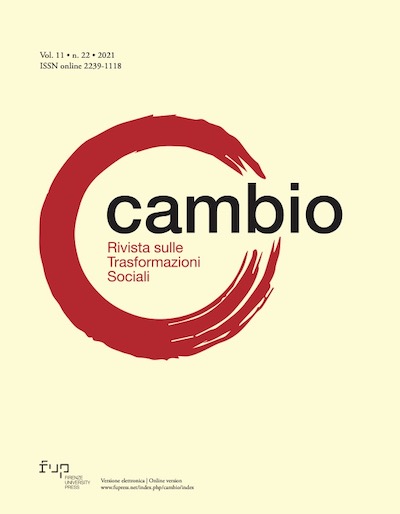Published 2022-08-03
Keywords
- ageism,
- Active ageing,
- Covid-19,
- old age exclusion,
- ageing representation
How to Cite
Abstract
The idea that older people should be active agents has dominated policy discourse across health, social care and housing that has a core care function. In the context of ageing population, the active and successful ageing paradigm risks to exacerbating existing inequalities and disadvantages that take shape along the life course and that cross several aspects of everyday life. The covid-19 pandemic shed light on areas of inequalities and social exclusion in old age. This paper, based on interviews with both representatives of services for older adults and people over 65 living in a city of Northern Italy, aims at exploring representations and (self)perceptions of ageing in the wake of the health emergency, with a focus on the re-definition of everyday life and habits, emerging needs, and on the weakness of services in front of an unprecedented and unpredictable situation. Results will show that public representations of ageing during the pandemic came into tension with older adult’s self-perceptions, bringing to light dynamics of social exclusion and even of a “benevolent” ageism.


